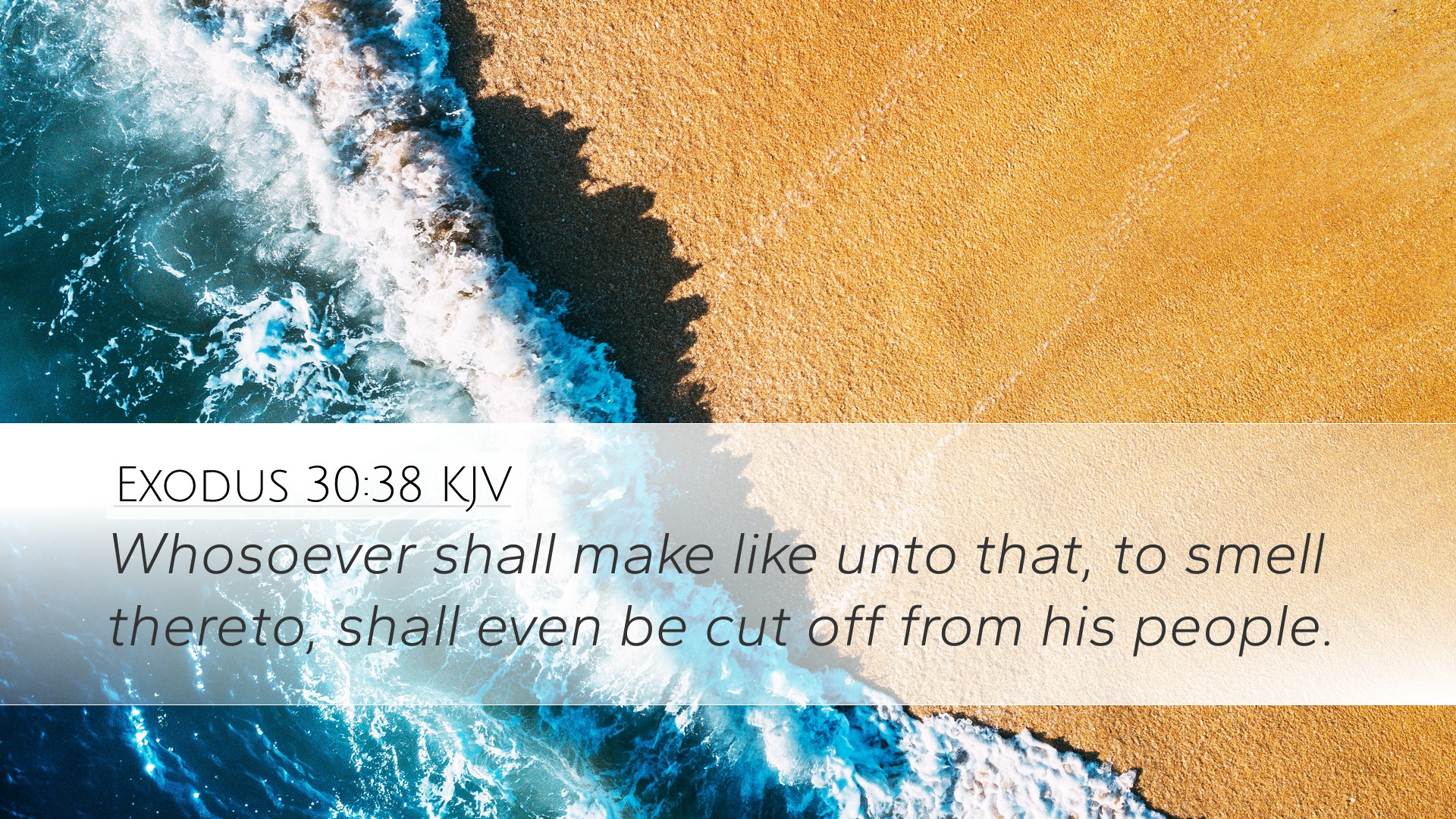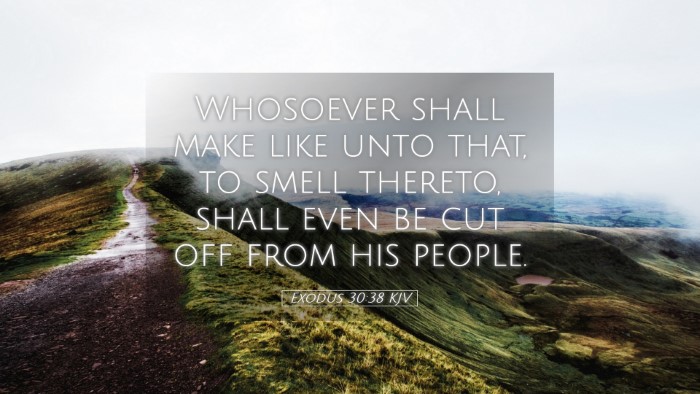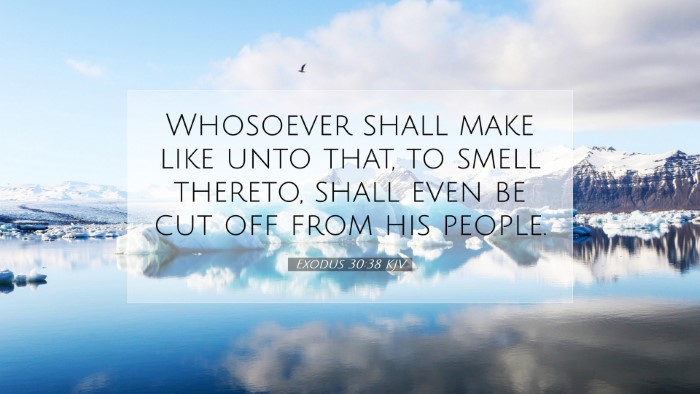Commentary on Exodus 30:38
Verse: "Whoever makes any like it, to use as perfume, shall be cut off from his people."
Introduction
Exodus 30:38 concludes a segment concerning the holy incense prescribed in the Mosaic Law. This verse addresses the severe penalties for those who would replicate this sacred formula for personal use. The gravity of this decree underscores not only the sanctity of the offerings and materials associated with the worship of Yahweh but also highlights the importance of obedience to divine commandments.
Contextual Analysis
The larger context of Exodus 30 deals with the rituals and items associated with the Tabernacle, emphasizing the place where God would meet with His people. The incense constitutes a central aspect of worship, reflecting God's holiness and the necessity of approaching Him in the manner He prescribes.
Commentary Highlights
-
Matthew Henry's Insights
Matthew Henry emphasizes the exclusivity of the incense made for the Tabernacle, which symbolizes the prayers of the saints. He notes that the incense is representative of worship that must be offered in a prescribed way. Henry argues that this prohibition against imitation illustrates God’s intent to maintain the distinctiveness and purity of His worship.
-
Albert Barnes' Commentary
Albert Barnes expands on the notion of divine jealousy in worship. He discusses how the strict penalty for unauthorized use of the incense serves to deter any trivialization of sacred acts. Barnes argues that the phrase "shall be cut off" indicates a severe consequence, likely excommunication, that mirrors the seriousness of the covenant relationship between God and Israel. This reflects God's demand for holiness and fidelity.
-
Adam Clarke's Observations
Adam Clarke provides a detailed examination of the ingredients and preparation of the holy incense detailed earlier in Exodus. He suggests that the combination of spices was not only for fragrance but represented the attribute of God and the prayer of the faithful. Clarke reiterates the theological implication of the prohibition, emphasizing that any attempt to replicate such holiness for personal gain is not only misguided but blasphemous.
Theological Reflections
The prohibition in Exodus 30:38 serves as a critical reminder of the sacred nature of worship and the importance of adhering to God's commandments. Worship is not merely a personal expression; it is an act that must align with divine instructions. This verse reinforces the idea that God's holiness demands respect and reverence, showcasing the covenant's relational nature between God and His people.
Practical Applications
For pastors and theologians, the implications of this verse extend into contemporary worship practices. The desire to be creative or innovative in worship must always be filtered through the lens of reverence and adherence to biblical principles. This is a call to evaluate personal and corporate worship styles and ensure they align with the intentions and specifications God has provided through His word.
-
1. Respect for Sacredness:
Understanding the weight of God's commands compels us to approach worship with the utmost seriousness. Every element of worship should point back to God’s holiness.
-
2. Obedience to God's Word:
The blessings of the Christian life derive from adherence to God's instructions. This goes beyond mere ritual compliance; it encompasses a heart aligned with God's desires.
-
3. Caution Against Imitation:
While creative expressions of faith are valuable, they must be approached cautiously. There is a fine line between innovation in worship and presumption upon God's commands.
Conclusion
In sum, Exodus 30:38 serves as a powerful reminder of God's desire for holiness in worship. The exclusive nature of the incense and the dire consequences of unauthorized use shed light on the overarching theme of the sacredness of God's instructions. For today's church, this verse beckons a return to reverent worship that faithfully honors God’s holiness and purpose.


